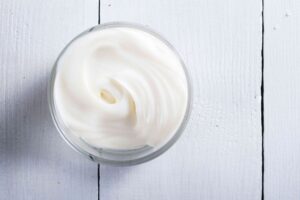:max_bytes(150000):strip_icc():format(jpeg)/Health-GettyImages-1367846656-39eda502987b451ebf78a96fb00489fd.jpg)
Diet soda is often thought of as a healthier alternative to regular soda because it’s sugar-free. It uses sugar substitutes like aspartame, making the beverage free from calories and added sugars.
The average diet in the United States is high in added sugars, so choosing diet soda over regular soda—a major contributor of added sugars—can be an easy way to reduce intake.
Diet soda isn’t without health risks. Studies show that regularly drinking diet soda may raise your risk of developing diabetes and other health conditions.
Diet soda has similar ingredients to regular soda, but the sugar is swapped for a sugar substitute. As a result, diet soda doesn’t have any calories or added sugars.
The most common sugar substitute in diet soda is aspartame, but diet soda may also contain potassium acesulfame, sucralose, and saccharin. These are all FDA-approved sweeteners that have been extensively studied.
Other than the sweetener, the ingredients in regular and diet soda are usually the same. They contain the same artificial flavors and additives. Diet soda is calorie-free because sugar is the main source of calories in regular soda.
On average, people in the U.S. consume an amount of added sugars that exceeds the Dietary Guidelines’ recommendation of less than 10% of total daily calorie intake. Soda is a major source of added sugar in the diet.
If you’re a soda drinker, switching from regular to diet soda can help reduce your intake of added sugars and, in turn, your total calorie intake.
Consuming excess added sugars is linked with health issues like type 2 diabetes, heart disease, and tooth decay.
Replacing high-sugar beverages like soda with water can greatly benefit your health. However, research shows that replacing regular soda with diet soda may still leave you with a similar risk of developing these health issues.
Although diet soda can help reduce added sugar and calorie intake, it may still come with health risks, some of which are similar to those of regular soda.
May Lead To Tooth Decay
Swapping out regular soda for diet soda may lower your intake of cavity-causing sugars, but it doesn’t necessarily protect overall dental health.
Diet soda is still acidic, and drinking it regularly can lead to dental erosion over time. Studies show that people who drink diet soda tend to have higher rates of dental erosion than those who primarily drink water.
Frequently drinking carbonated drinks like soda is one of the main risk factors for dental erosion, according to the American Dental Association.
May Increase Diabetes Risk
Consuming too many added sugars is linked with higher diabetes risk, which is why some people choose sugar-free beverages like diet soda over regular soda. However, research shows diet soda may also increase diabetes risk.
One study found that participants who drank at least one serving of diet soda per week had about a 70% greater risk of diabetes than people who didn’t drink diet soda. Another study found that people who drank regular soda or diet soda daily had a similar risk of developing diabetes.
Research suggests artificial sweeteners might impact diabetes risk. Aspartame could raise insulin resistance by affecting a brain receptor linked to insulin sensitivity. It may also increase cortisol (a stress hormone), disrupt gut bacteria, and cause oxidative stress, all of which could make managing diabetes more difficult.
Artificial sweeteners may also make it difficult for your brain to understand the relationship between sweetness levels and calorie intake, which could influence your overall diet quality.
May Increase Risk of Kidney Disease
Diet soda may also raise your risk of developing kidney disease. One study found that the more diet soda you drink, the higher your risk of kidney disease.
Research suggests this may be related to the phosphorus content of diet soda (and regular soda). Phosphorus is used to add color and flavor to soda. While it’s an important mineral that helps build strong bones and teeth, consuming too much has been associated with impaired kidney function. Other studies have not found this link, so more research is needed.
People with impaired kidney function, such as those with chronic kidney disease, need to be careful about how much phosphorus they consume.
May Raise Blood Pressure
Multiple studies have linked diet soda intake to high blood pressure (hypertension), although the reason why is not clear. One study found that participants’ risk of hypertension increased by 9% for each serving of diet soda they drank per day.
In another study, the risk of hypertension was slightly higher for diet soda drinkers compared to regular soda drinkers.
Researchers haven’t determined that diet soda directly causes high blood pressure. People who drink diet soda may have chosen to do so because of existing health issues related to high blood pressure, such as heart disease or obesity.
Swapping diet soda for a more beneficial beverage may improve health. Enjoy plain or sparkling water to meet your recommended fluid intake, or try other bubbly and naturally flavorful beverages. Here are some ideas:
- Mocktails: Mocktails can be as simple as mixing 100% fruit juice with sparkling water. You can also flavor them with fresh herbs, limes, oranges, or other natural flavor enhancers. Use no-sugar-added juice to enjoy the natural sweetness of fruit and its health-promoting vitamins and antioxidants.
- Flavored seltzer: For a step up from plain water that’s also calorie- and sugar-free, try flavored sparkling water. Seltzer is often unsweetened and flavored with natural fruit essences, unlike the artificial sweeteners and additives in diet soda that are linked with health issues.
- Kombucha: Kombucha has potential metabolic, cardiovascular, and gut health benefits. It’s made with antioxidant-rich tea and is fermented, so it contains probiotics. Research on kombucha’s health benefits is still limited, but it’s likely better for you than diet soda.
- Prebiotic soda: Prebiotic soda is another alternative worth trying if you want a carbonated drink. These sodas contain prebiotic fiber, which feeds the healthy bacteria in your gut microbiome. They usually contain far less added sugar than regular soda and have some added nutrients that diet soda doesn’t provide.
Even though it’s calorie- and sugar-free, diet soda is not necessarily better for your health than regular soda. Research shows it may lead to similar health issues, like diabetes and dental problems.
Most of the research shows a correlation between diet soda and health issues rather than a direct cause-and-effect relationship. More research is necessary to fully understand diet soda’s effects on health.
If you only drink diet soda occasionally, don’t stress. If you drink the beverage most days of the week, swapping it out for drinks like water, flavored seltzer, or prebiotic soda may benefit your health.













